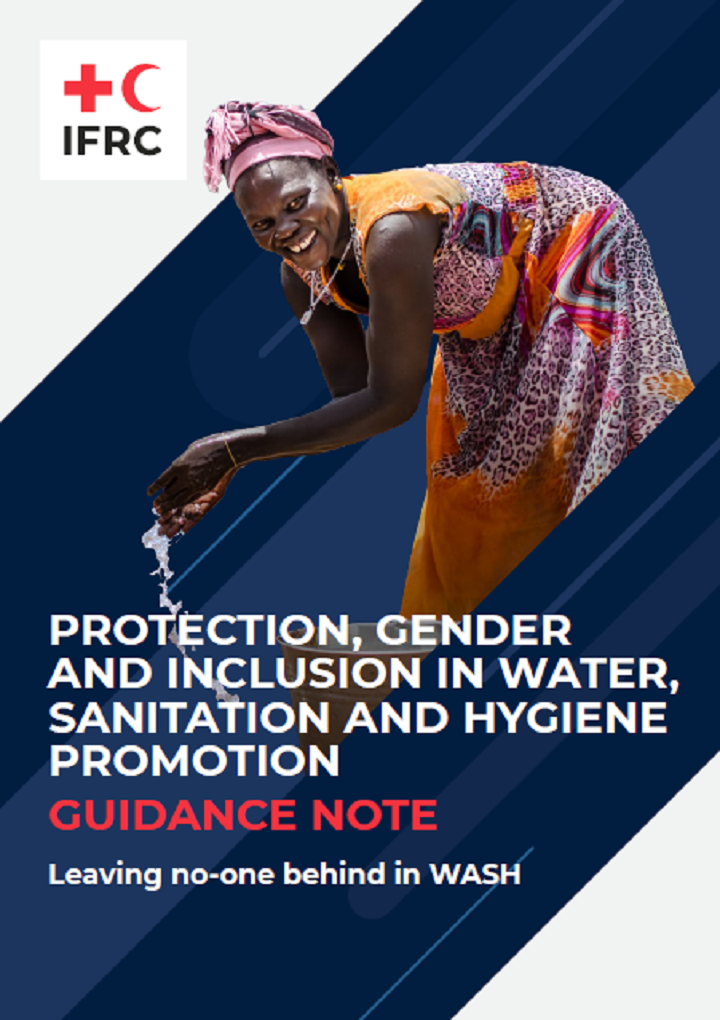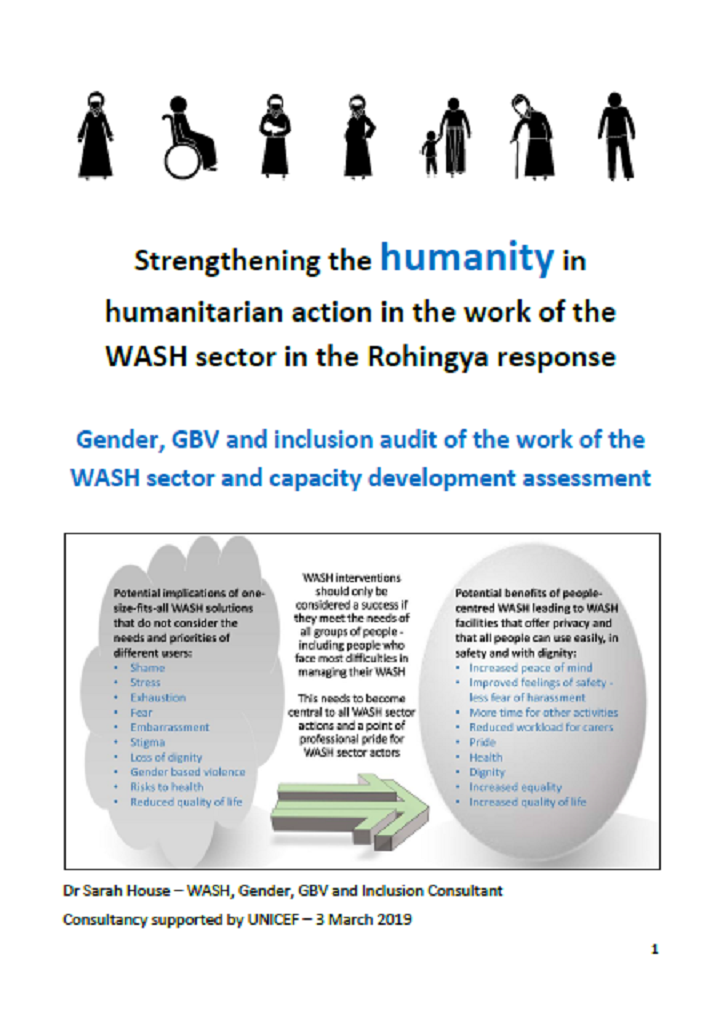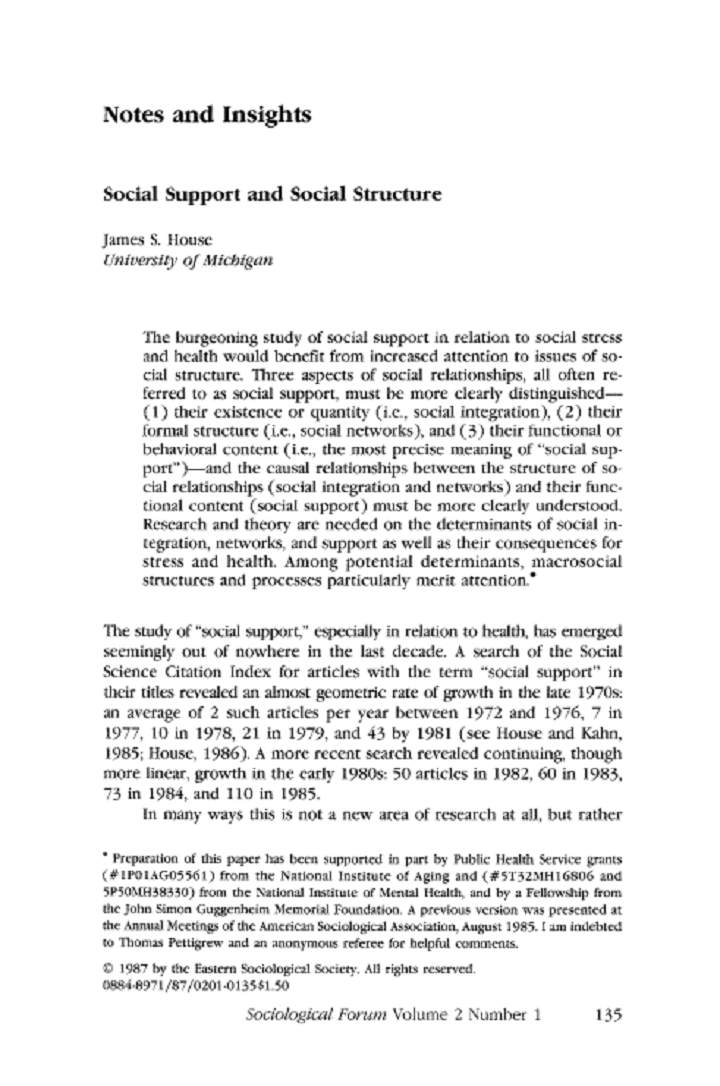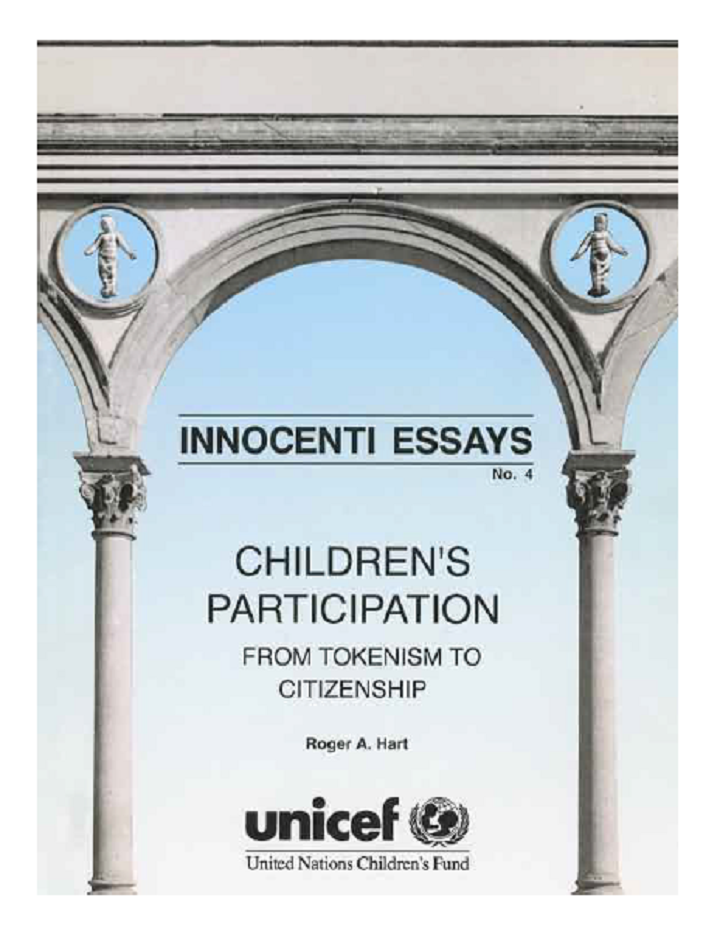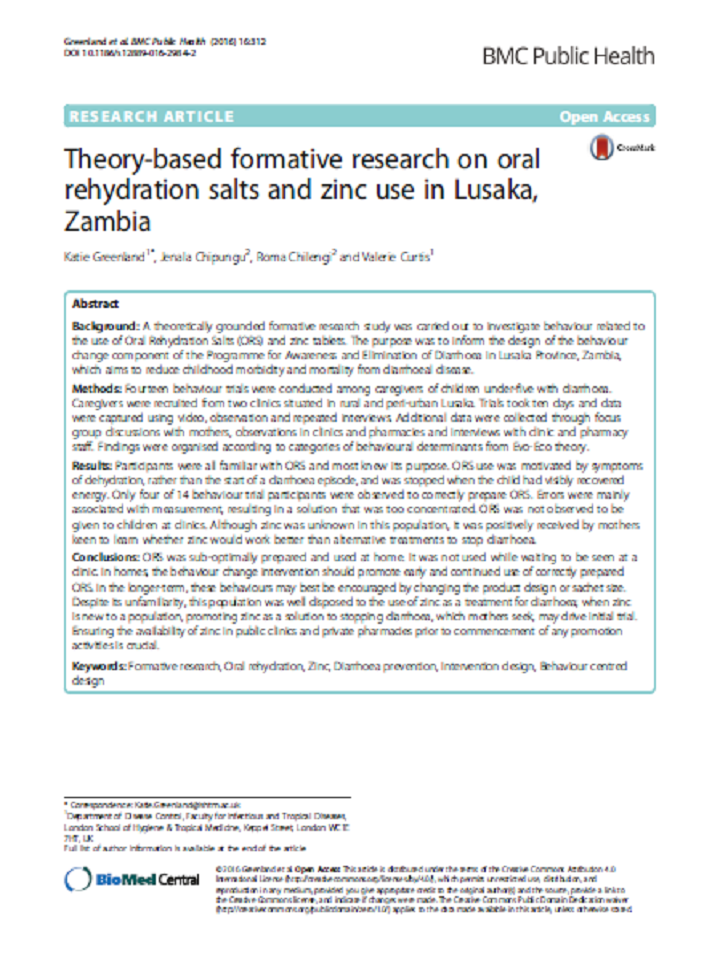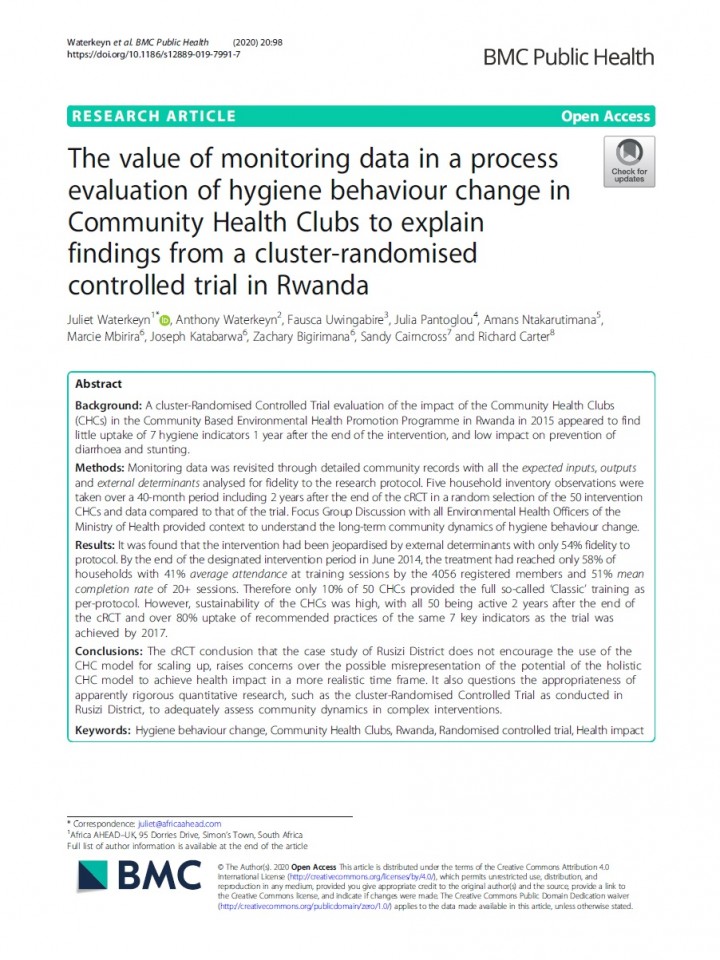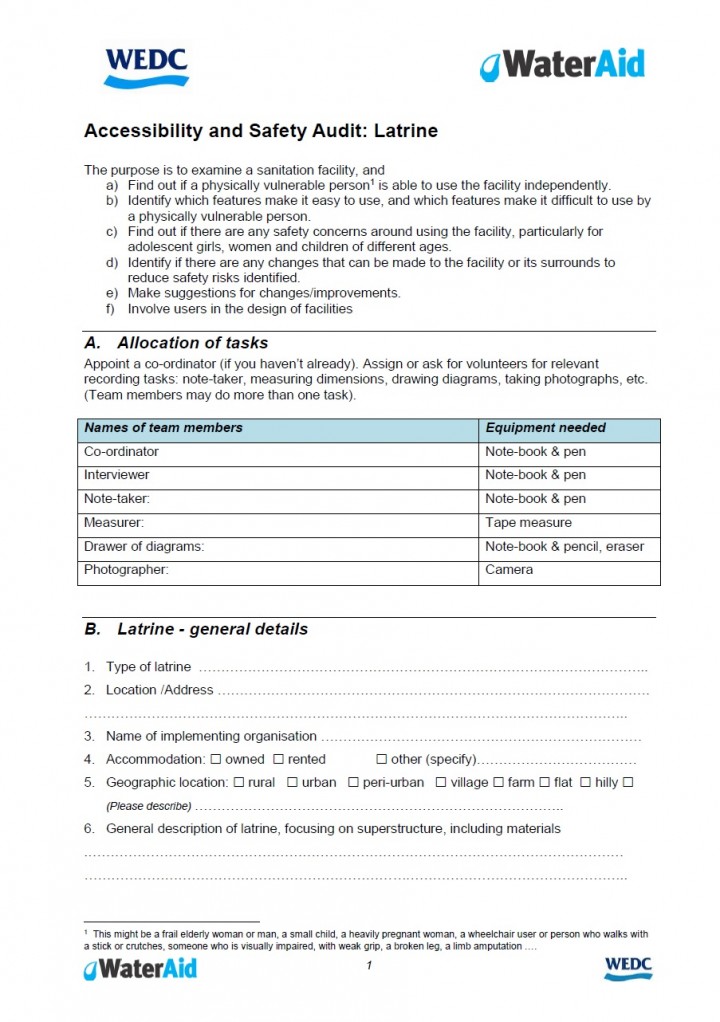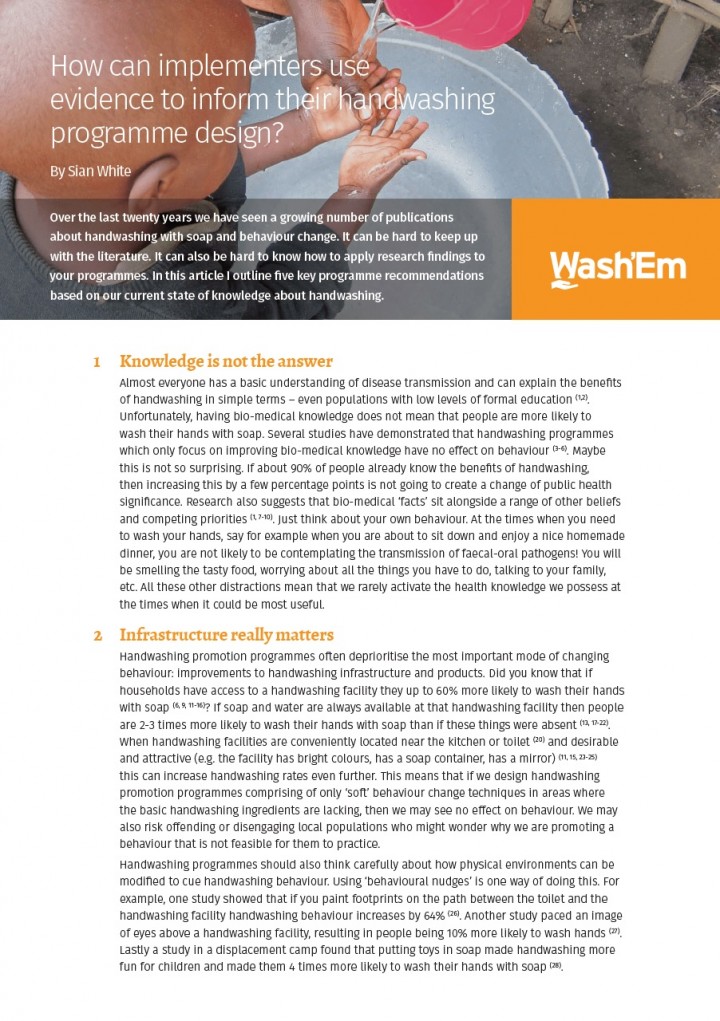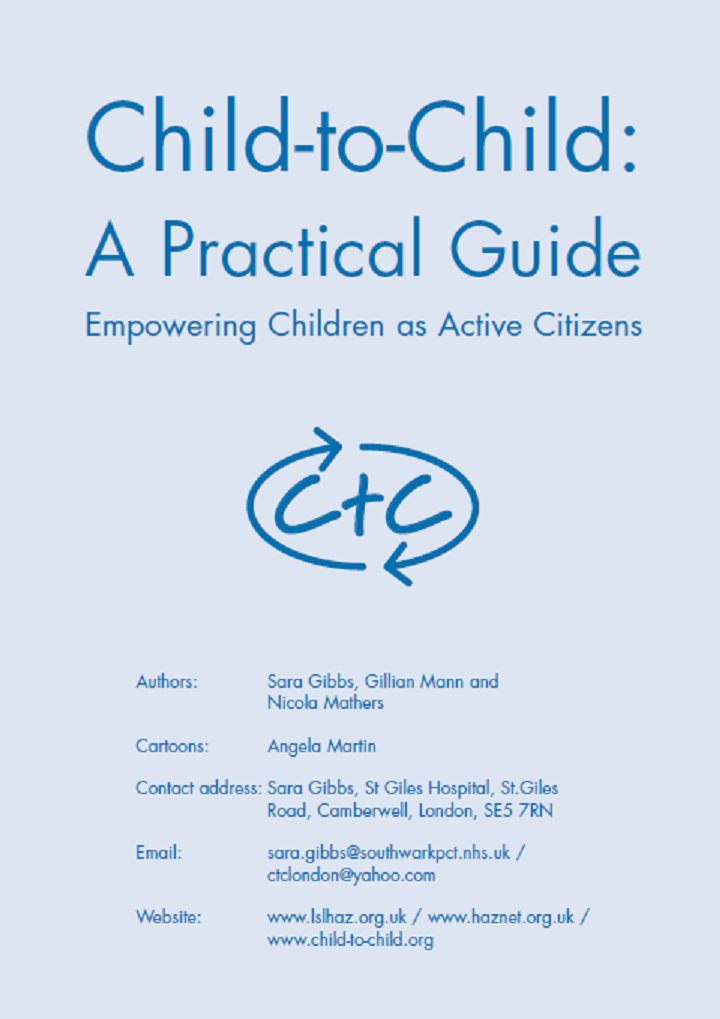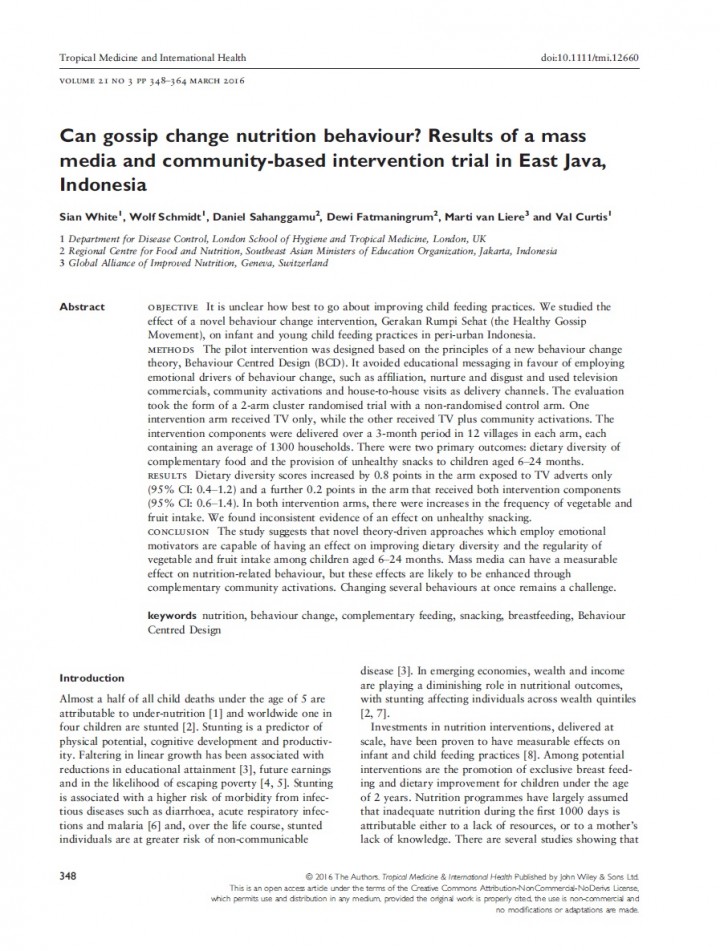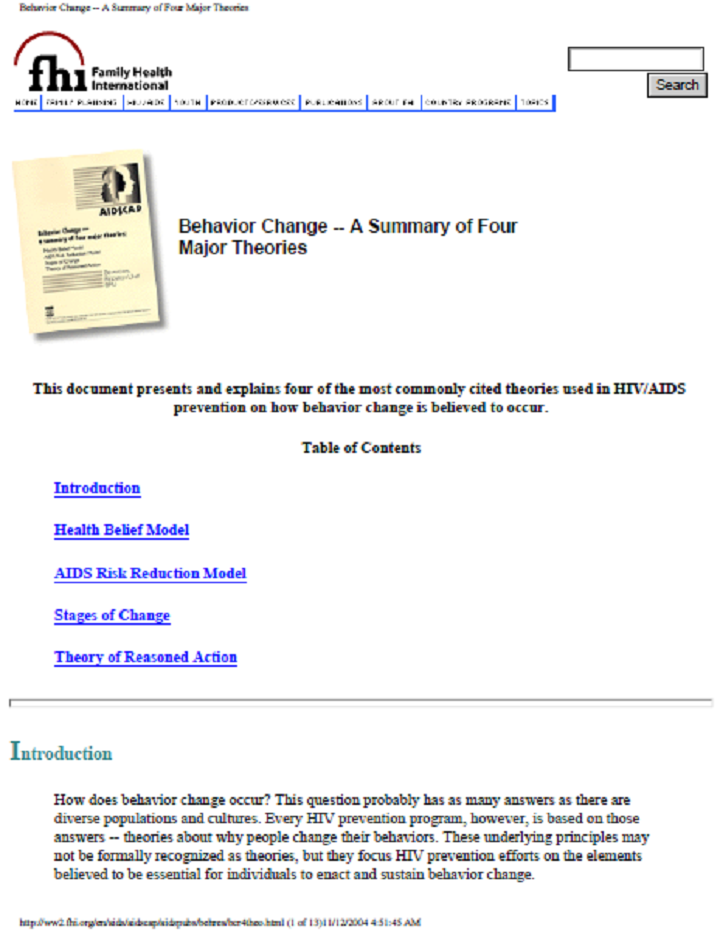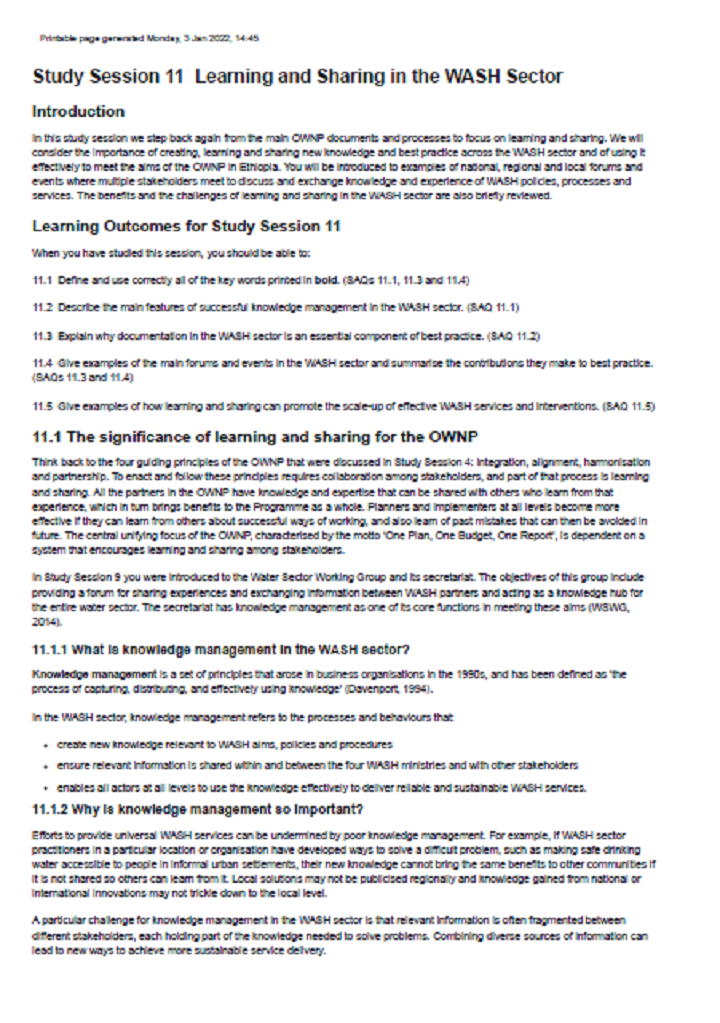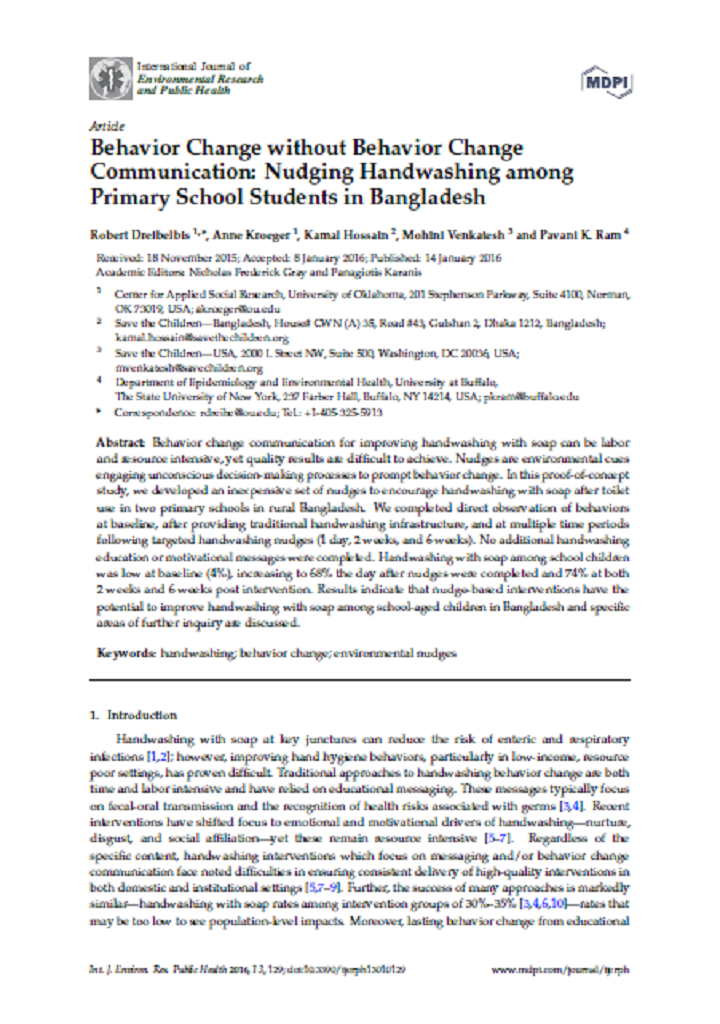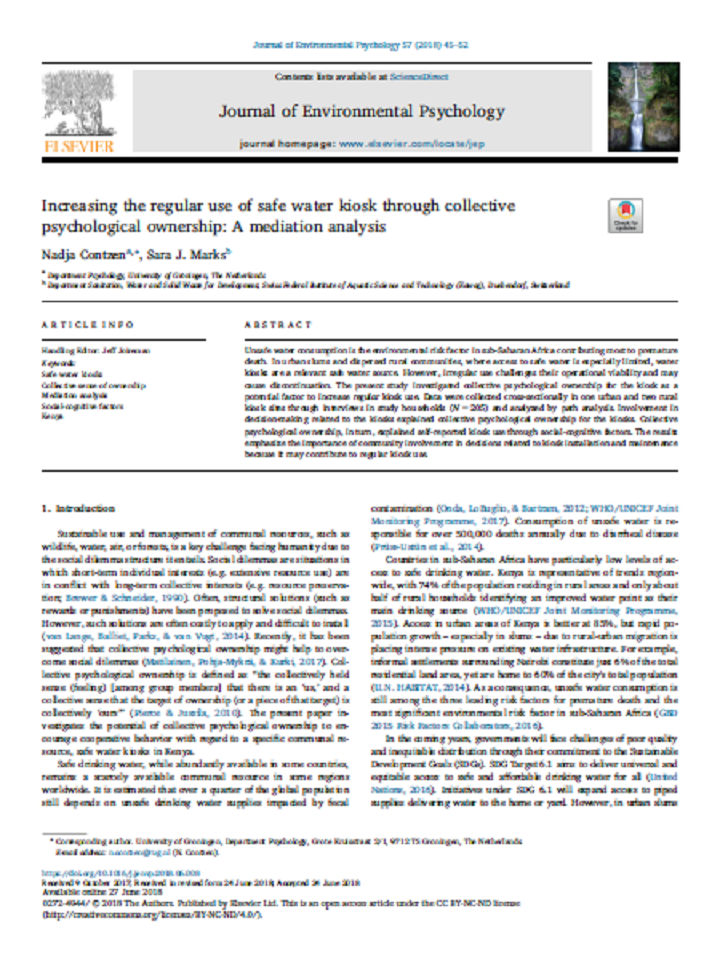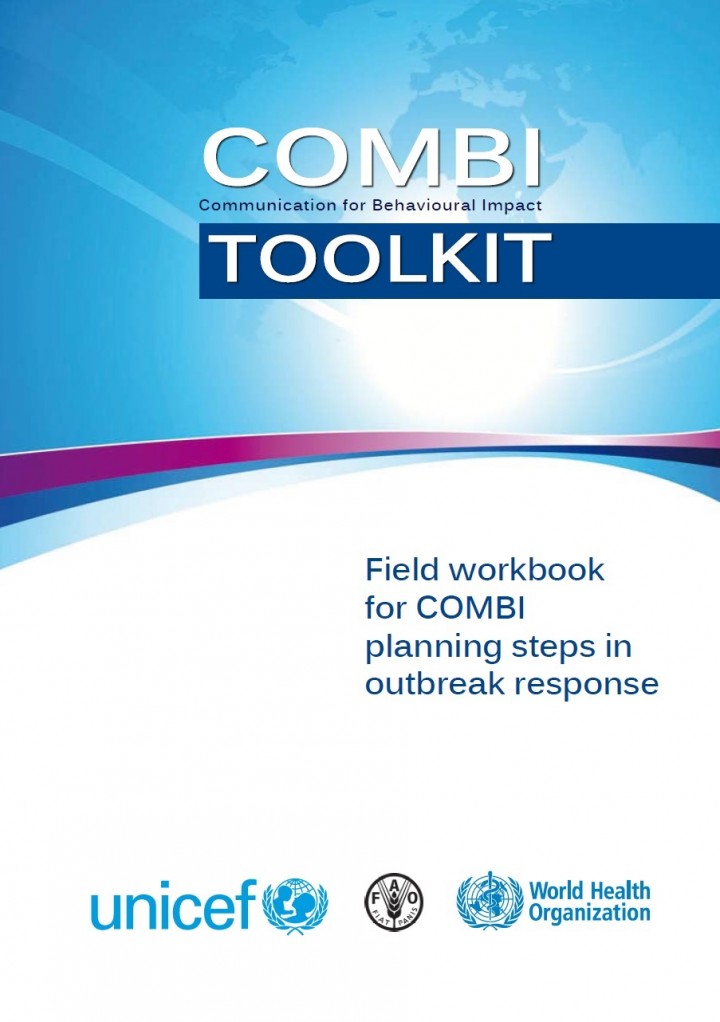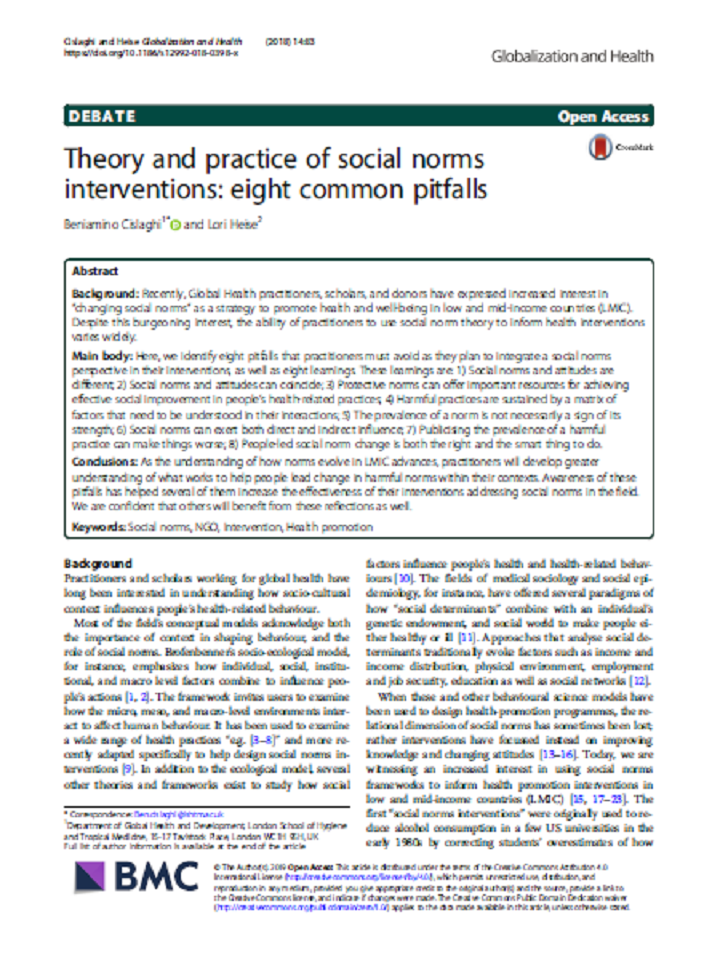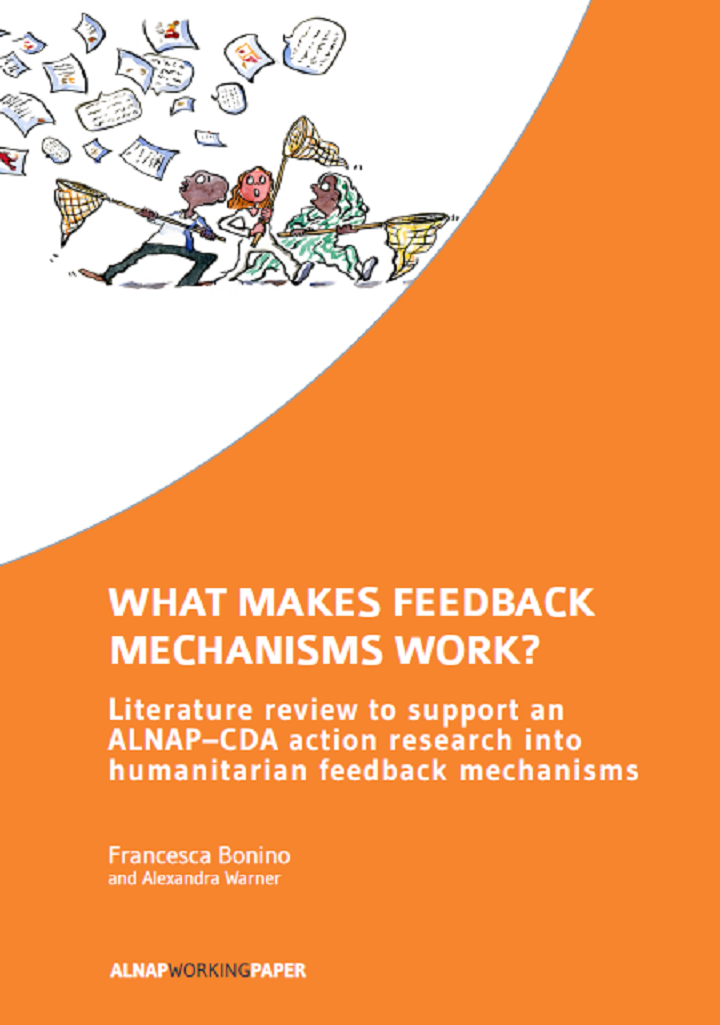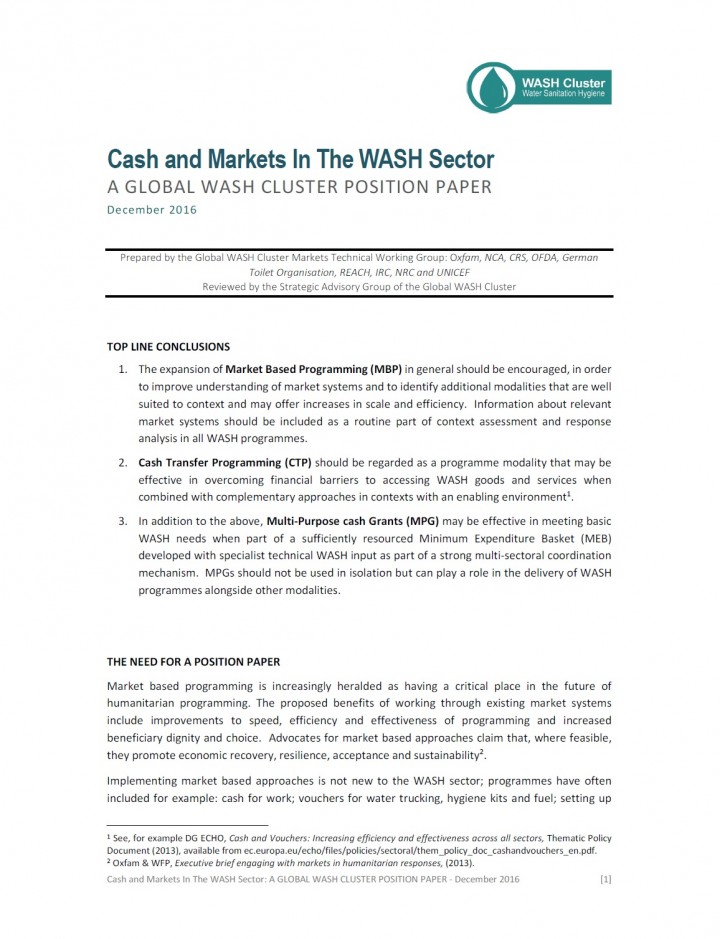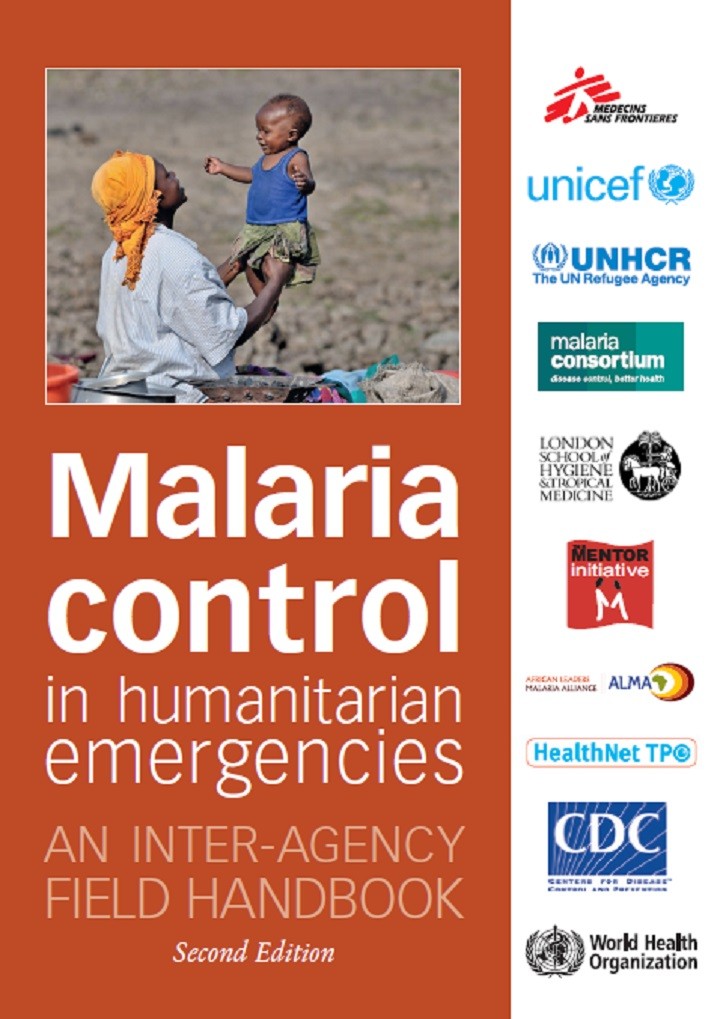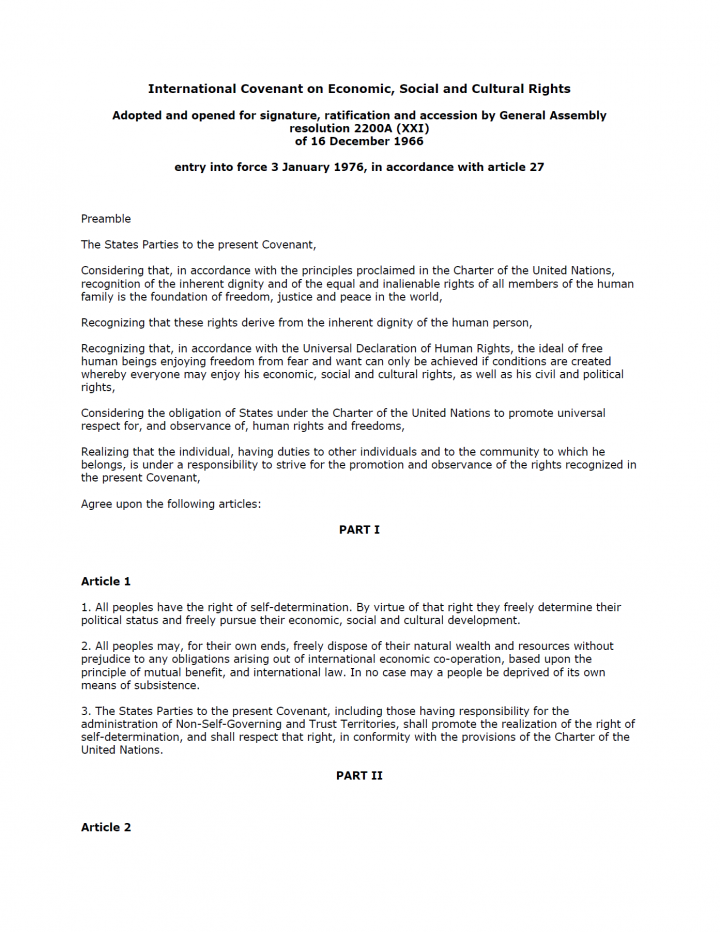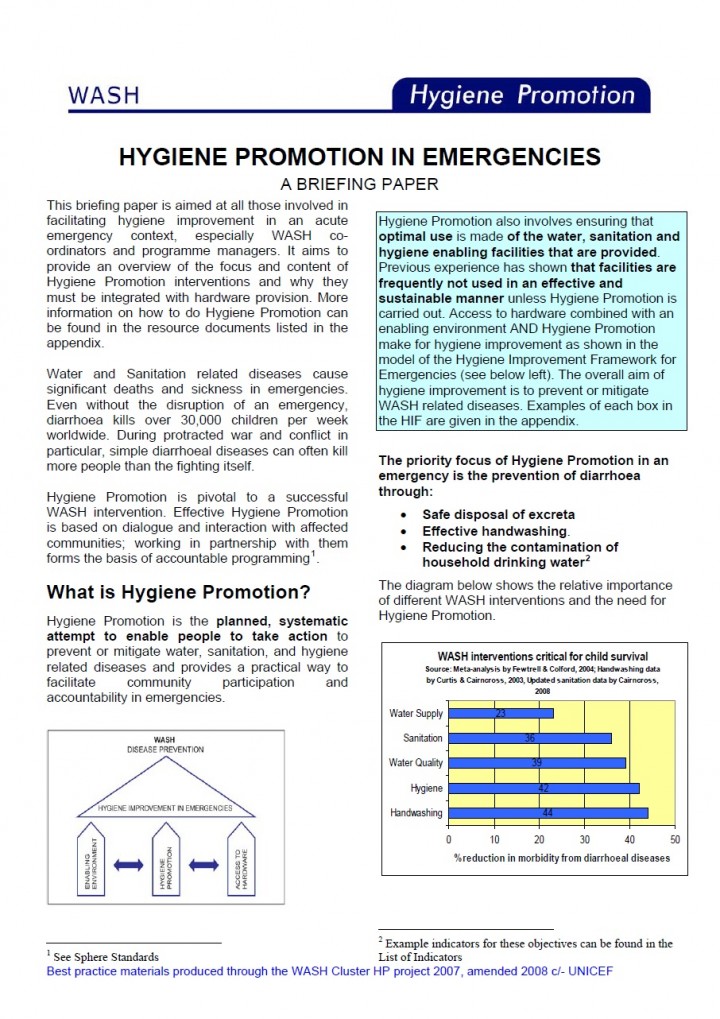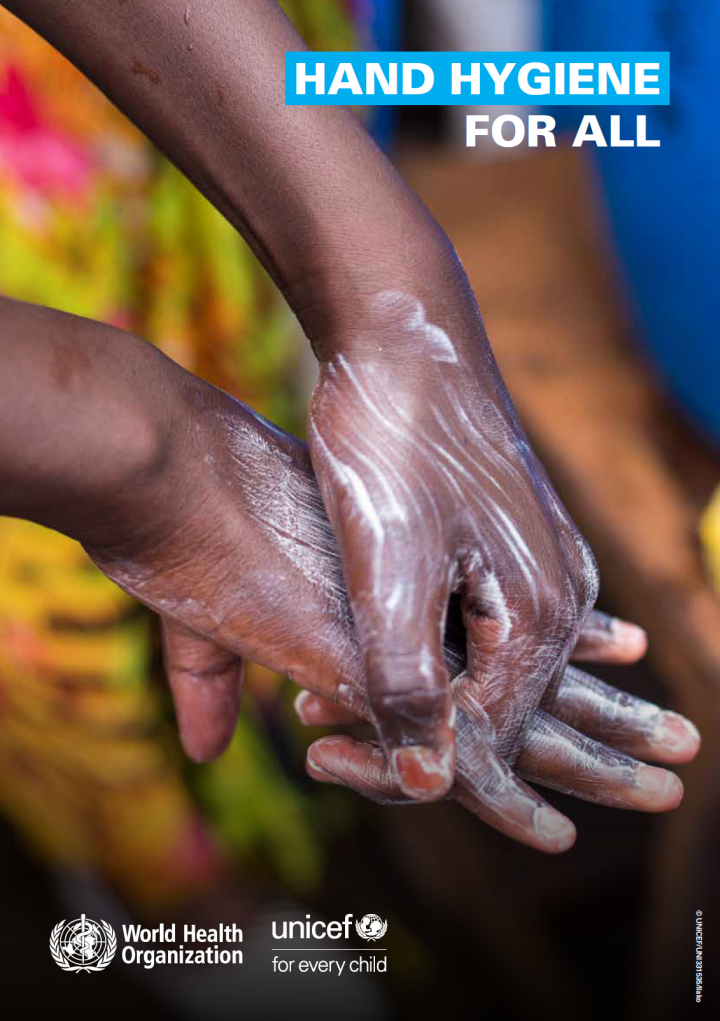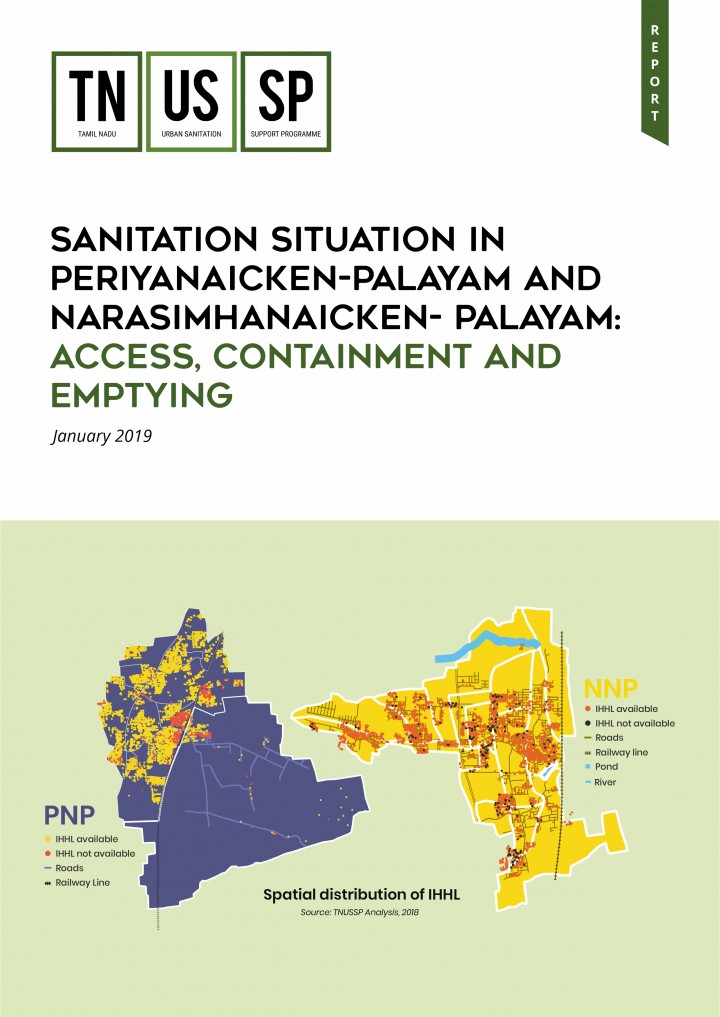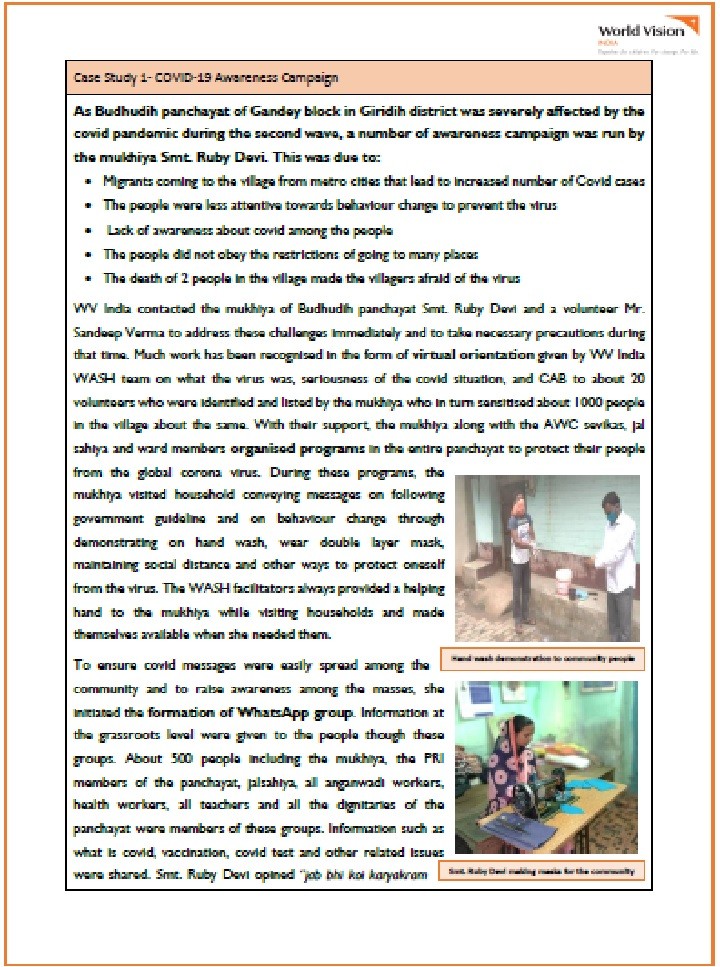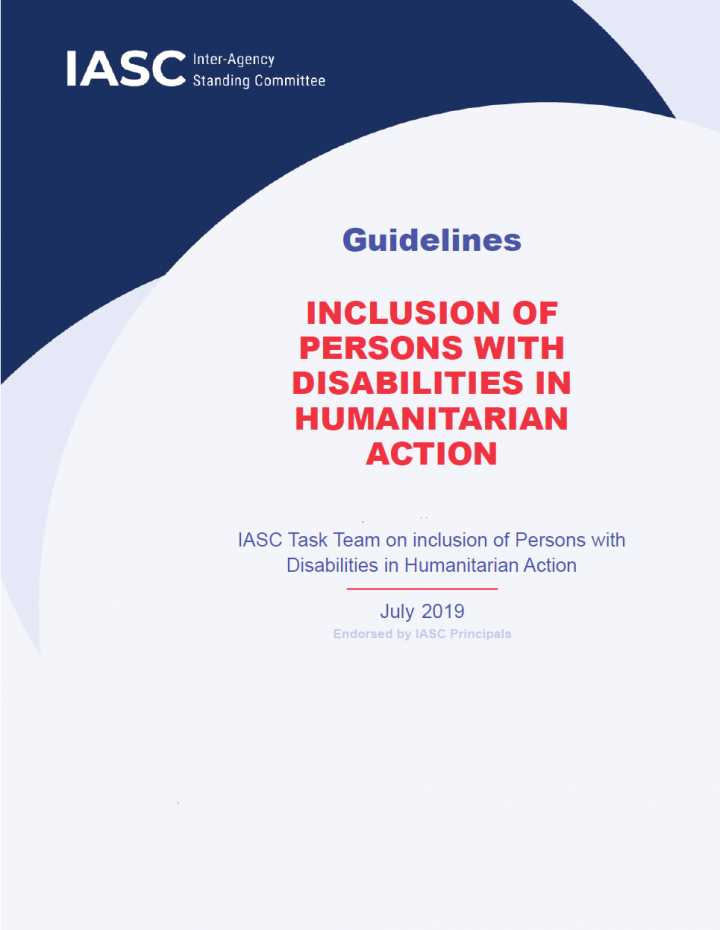Searching for information on Sanitation Workers?
The Sanitation Workers Knowledge + Learning Hub is the best source for all current news, trends, articles and updates on sanitation workers rights around the world.
The burgeoning study of social support in relation to social stress and health would benefit from increased attention to issues of social structure. Three aspects of social relationships, all often referred to as social support, must be more clearly distinguished—(1) their existence or quantity (i.e., social integration), (2) their formal structure (i.e., social networks), and (3) their …
A nation is democratic to the extent that its citizens are involved, particularly at the community level. The confidence and competence to be involved must be gradually acquired through practice. It is for this reason that there should be gradually increasing opportunities for children to participate in any aspiring democracy, and particularly in those nations already convinced that they are …
Fourteen behaviour trials were conducted among caregivers of children under-five with diarrhoea. Caregivers were recruited from two clinics situated in rural and peri-urban Lusaka. Trials took ten days and data were captured using video, observation and repeated interviews. Additional data were collected through focus group discussions with mothers, observations in clinics and pharmacies and …
Background:
A cluster-Randomised Controlled Trial evaluation of the impact of the Community Health Clubs (CHCs) in the Community Based Environmental Health Promotion Programme in Rwanda in 2015 appeared to find little uptake of 7 hygiene indicators 1 year after the end of the intervention, and low impact on prevention of diarrhoea and stunting.
Methods:
Monitoring data was revisited through …
The purpose is to examine a sanitation facility, and
a) Find out if a physically vulnerable person1 is able to use the facility independently.
b) Identify which features make it easy to use, and which features make it difficult to use by
a physically vulnerable person.
c) Find out if there are any safety concerns around using the facility, particularly for
adolescent girls, women and …
Objective: It is unclear how best to go about improving child feeding practices. We studied the effect of a novel behaviour change intervention, Gerakan Rumpi Sehat (the Healthy Gossip Movement), on infant and young child feeding practices in peri-urban Indonesia. Methods: The pilot intervention was designed based on the principles of a new behaviour change theory, Behaviour Centred Design (BCD). …
In this study session we step back again from the main OWNP documents and processes to focus on learning and sharing. We will consider the importance of creating, learning and sharing new knowledge and best practice across the WASH sector and of using it effectively to meet the aims of the OWNP in Ethiopia. You will be introduced to examples of national, regional and local forums and events where …
Behavior change communication for improving handwashing with soap can be labor and resource intensive, yet quality results are difficult to achieve. Nudges are environmental cues engaging unconscious decision-making processes to prompt behavior change. In this proof-of-concept study, we developed an inexpensive set of nudges to encourage handwashing with soap after toilet use in two primary …
Unsafe water consumption is the environmental risk factor in sub-Saharan Africa contributing most to premature death. In urban slums and dispersed rural communities, where access to safe water is especially limited, water kiosks are a relevant safe water source. However, irregular use challenges their operational viability and may cause discontinuation. The present study investigated collective …
This field workbook supports the implementation of the interagency (FAO, UNICEF, WHO) “Communication for Behavioural Impact (COMBI): A toolkit for behavioural and social communication in outbreak response”. It is a handheld guide and notebook for applying the WHO COMBI methodology in 7-steps, during an outbreak. It is primarily intended for risk communication, developmental communication and …
Recently, Global Health practitioners, scholars, and donors have expressed increased interest in “changing social norms” as a strategy to promote health and well-being in low and mid-income countries (LMIC). Despite this burgeoning interest, the ability of practitioners to use social norm theory to inform health interventions varies widely.
Here, we identify eight pitfalls that practitioners …
This literature review supports a broader ALNAP and CDA initiative aiming at producing evidence-informed guidance for humanitarian agencies on ways to strengthen the effectiveness of mechanisms for gathering feedback from affected populations in humanitarian contexts. It focuses on two key questions: (1) why and how humanitarian agencies seek, process, and respond to feedback from affected …
Market based programming is increasingly heralded as having a critical place in the future of humanitarian programming. The proposed benefits of working through existing market systems include improvements to speed, efficiency and effectiveness of programming and increased beneficiary dignity and choice. Advocates for market based approaches claim that, where feasible, they promote economic …
This interagency handbook was developed to set out effective malaria control responses in humanitarian emergencies, particularly during the acute phase when reliance on international humanitarian assistance is greatest. It provides policy-makers, planners, and field coordinators with practical advice on designing and implementing measures to reduce malaria morbidity and mortality in both man-made …
Three billion people – 40 per cent of the world’s population – do not have a place in their homes to wash their hands with water and soap. Threem quarters of those who lack access to water and soap live in the world’s poorest countries and are amongst the most vulnerable: children and families living in informal settlements, migrant and refugee camps, or in areas of active conflict. This …
TNUSSP carried out a geographic information system (GIS) based sanitation mapping of households and establishments in the two town panchayats of PNP and NNP with an aim to primarily understand the nature of containment and on-ground desludging practices to enable more effective planning. It also included the preparation of GIS-linked database of properties (with households and establishments) …
The guidelines set out essential actions that humanitarian actors must take in order to effectively identify and respond to the needs and rights of persons with disabilities who are most at risk of being left behind in humanitarian settings.
The recommended actions in each chapter place persons with disabilities at the centre of humanitarian action, both as actors and as members of affected …

